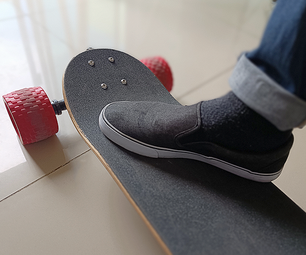Introduction: Mechanical Vs. Fixed Broadheads – What to Shoot?
Should I shoot fixed blade or mechanical blade broadheads? That’s the magic question for many new, and even experienced, bow hunters. We’ll go over the pros and cons of each, and explain what situations you’d want to shoot a fixed blade broadhead and what situation you’d want to shoot a mechanical broadhead.
We all have our favorite brands when it comes to broadheads, we really like our broadheads from G5 Outdoors; the Montec Fixed Blade (and Montec CS) and the Havoc Mechanical Blade.
Fixed Blade Broadhead Drawbacks: due to the added wind resistance of a fixed blade, you’ll find they’re a little bit less reliable when it comes to accuracy when compared to the mechanical blade due to their increased aerodynamics. Obviously, the windier the hunting conditions, the more you’ll experience the wind resistance of the fixed blade broadheads. You will also have to fine tune your equipment accordingly once you make the move to shooting a fixed blade broadhead. You’ll have to find the right weight and material of arrow to use, you might also have to adjust your fletchings to more wind resistant fletchings. The end goal is to create a balance between the front of the arrow and the back end of the arrow to ensure an ideal trajectory once you pull your release to shoot the arrow.
Mechanical Blade Broadhead Drawbacks: the nature and purpose of a mechanical blade brings more variables along with it. Mechanical blades are designed to ‘open’ or ‘extend’ upon impact of the target. Without proper preparation and the right equipment working together, there is always a risk that the mechanical blade will not open up on impact (i.e. if the arrow wasn’t traveling fast enough due to too low of a draw weight). There’s also a risk of it opening up before impact, usually due to not properly locking the broadhead before pulling it back. Most of the time, mechanical blades malfunctioning are due to user error rather than mechanical defect, so you’ll want to make sure to check all the boxes while preparing your equipment before using a mechanical broadhead. Lastly, mechanical blades experience less penetration. This is due to the way the energy is transferred upon impact, while mechanical blades have a greater cutting diameter, the extra cutting diameter causes more friction which lessens the penetration a bit. This is important to remember as you hunt bigger game, as you might need to rely on your broadhead penetrating a thick rib cage or shoulder to take down your animal. One important thing to note as well, mechanical blades are illegal in some states, so as always, be sure to check your state’s regulation book before heading into the woods.
Fixed Blade Broadhead Benefits: typically, fixed blades are either 1 1/8″ cutting diameter, or 1 1/6″. The larger the cutting diameter, obviously the larger the entry and exit will be in your target. But remember, larger means more friction and a little less penetration. Fixed blades are the strongest broadheads you can find when it comes to penetration compared to the mechanical blades. There’s a chance too that the animal you take with a fixed blade will experience less shock, which could result in a shorter recovery of the animal. Fixed blade broadheads are also much easier to sharpen than mechanical blades, which can result in a longer lifespan of the broadhead.
Mechanical Blade Broadhead Benefits: while traveling through the air, before impact, the mechanical blades are much more aerodynamic, giving us a truer and more reliable flight path. The increased cutting diameter of the broadhead will also give us, the hunter, a little more room for error. We always strive for a perfect shot, but we know hunts don’t always go as planned, so having a broadhead that can help take down your animal even if you might miss your target by a little bit can be an added bonus. The 2″ – 3″ cutting diameter can be pretty devastating. We like using mechanical blades for the smaller game hunts. For example, if you’re headed out on a turkey bow hunt, a mechanical blade would be nice to have, given your target is relatively smaller, thus increasing your chances of a succesful shot on the turkey. But, if you’re shooting a bow that is under, for example, a 50 pound draw weight, using a mechanical blade might be too risky, as this increases the chances of the blades not opening up on impact.
We hope this has helped you decide when and what broadhead is right for you! Let us know what you think and when you like using each broadhead in the comments below!













